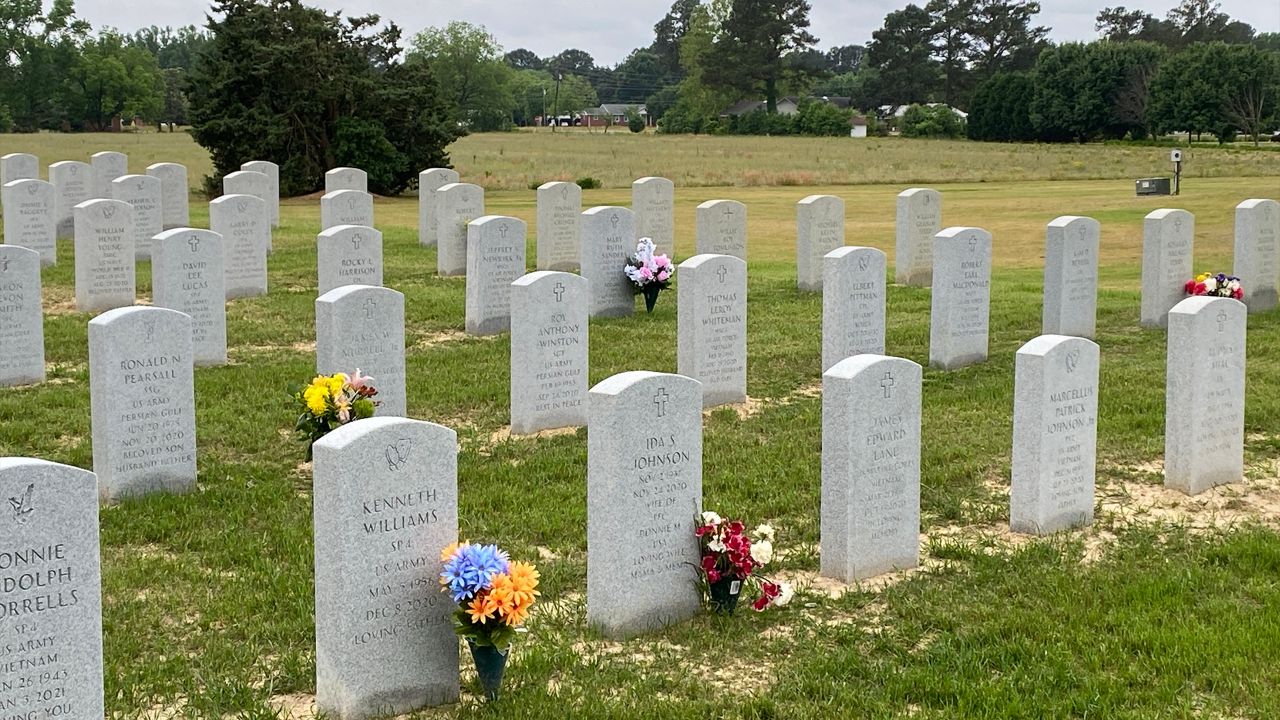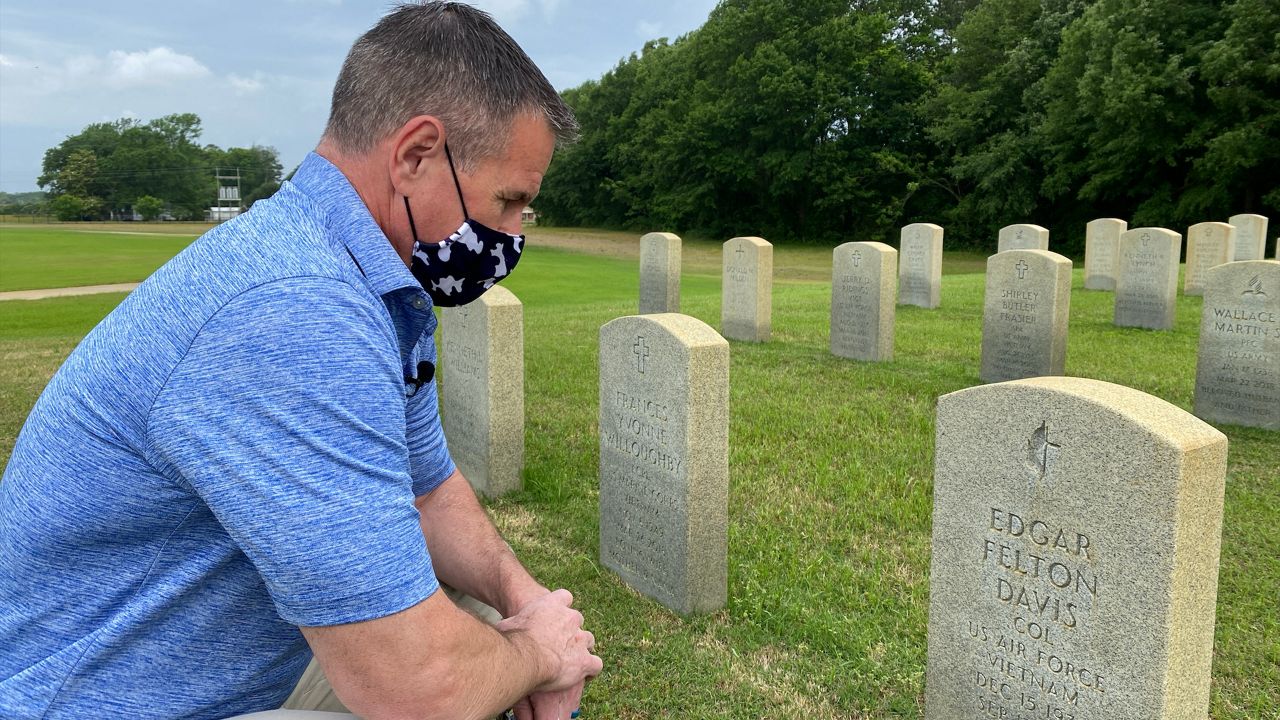WAYNE COUNTY, N.C. — The superintendent of a state veterans cemetery said he personally knows many of the people whose graves are under his care.
Whenever Bill Johnson steps out of his office, it doesn't take him long to reach the grave of someone he knew personally. There's Chief Steward Samuel Powell, a Black Navy veteran whose service took him from World War II through desegregation and the wars in Korea and Vietnam before ultimately living to the age of 100. There's Spc. Ken Boyd, a Korean War veteran who attended the same church as Johnson for the last 10 years of his life.
“Any time I come out here and I pass by Mr. Ken, I just give him a little pat and tell him hello,” he said.
Then there's Radarman 3rd Class Claud Rouse Jr., whose widow visited his grave regularly and became close friends with Johnson until her own death.
“Every time she came out here, I would stop, she'd park right here, and I'd come over, and I'd walk her right over to Mr. Claud,” he said.
When a current or former member of the U.S. Armed Forces dies, as long as their service ended under honorable conditions, they are eligible for burial in a veterans cemetery if they so choose.
In addition to the VA's system of 155 national cemeteries, nearly all of the states maintain their own system of state veterans cemeteries. North Carolina has four such cemeteries: Coastal Carolina State Veterans Cemetery in Jacksonville, Eastern Carolina State Veterans Cemetery near Goldsboro, Sandhills State Veterans Cemetery in Spring Lake and Western Carolina State Veterans Cemetery in Black Mountain.

Eastern Carolina State Veterans Cemetery is one of four state veterans cemeteries in North Carolina. Veterans are eligible for burial if they meet certain residency requirements.
Other than a plot allowance from the federal government for each burial site, the system receives all of its funding from the state. In addition to the eligibility requirements for national cemeteries, veterans who wish to be buried in a state veterans cemetery must have been a legal resident of North Carolina either at the time of their death, for a period of 10 years or at the time they first entered the Armed Forces.
Johnson has been the superintendent at Eastern Carolina State Veterans Cemetery, the newest of the four, since it opened in 2016. A retired Air Force master sergeant, Johnson came into the job quite by chance. He was interested in working for the state in some capacity and came across the job opening online.
“I thought, 'I meet all the qualifications,' so I applied, and because of the need here, at the time, they had funded the cemetery, but they hadn't funded the position,” he said.
That problem was quickly solved and on February 26, 2016, the new cemetery held its first burial service.
Johnson said in many cases, a veteran will meet with him to go over their wishes for burial. This way, he already has a file ready to go when they die.
The cemetery holds up to three funerals a day. When a funeral is scheduled, Johnson lowers the cemetery's flags to half-staff first thing in the morning. While his groundskeepers dig the grave site, Johnson coordinates with the honor guard and puts out signs advising family members when it's time to leave.
“Everybody in their emotional state, we try not to push them,” he said.
On the day Spectrum News 1 visited, the first funeral of the day was held at 10:30 a.m. Johnson directed the funeral motorcade to its spots, helped unload the casket from the hearse and then stood back while the family held its service.
“It is a job, but it's way more than just a job out here,” he said, adding he considers it the best job he's ever held besides his own military service.

Bill Johnson visits the grave of Col. Edgar Felton Davis, who was declared missing in action after his RF-4C was shot down over Laos in 1968. Davis' remains were recovered in 2018 and buried at Eastern Carolina State Veterans Cemetery.
Johnson said he plans to stay on the job at the cemetery until he retires. Even after that, he said he already has plans to keep the cemetery in his life right up to the end.
When Johnson dies, he plans to be buried in the same cemetery he once led.



